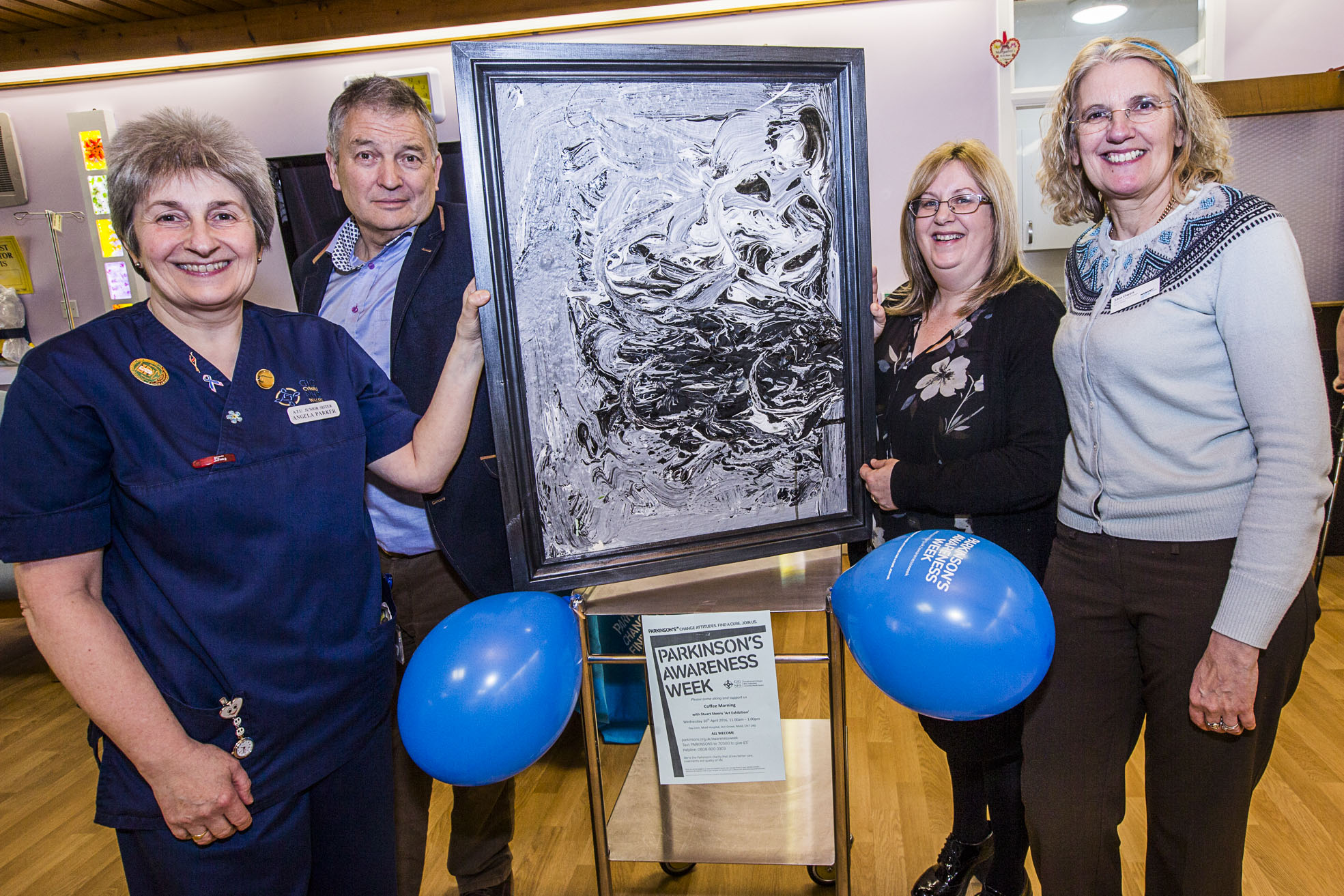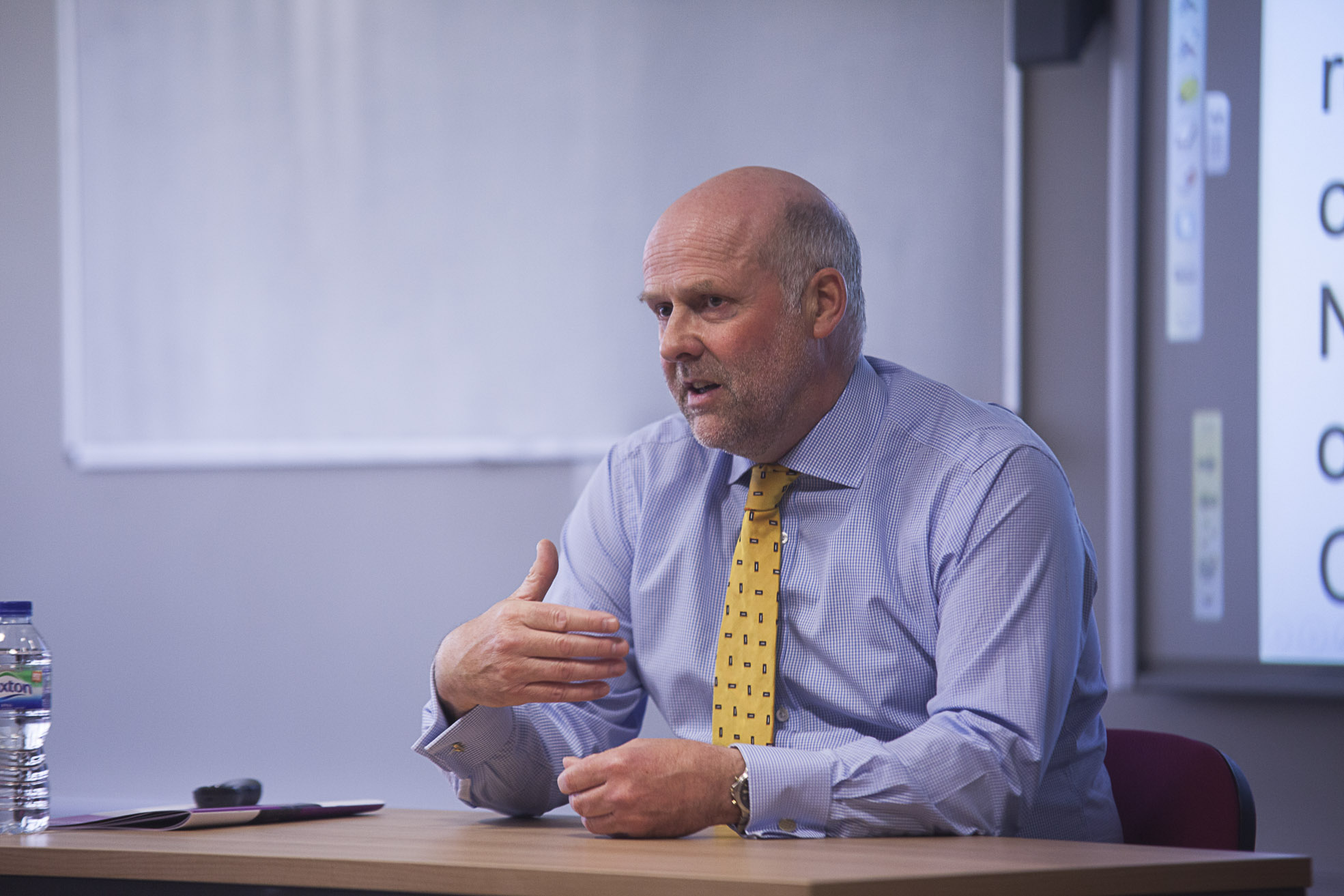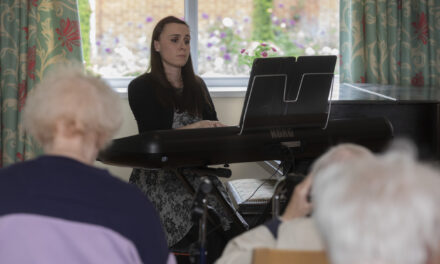A keep fit fan who was warned he would no longer be able to even walk due to Parkinson’s Disease is offering a beacon of hope to others with the condition.
Stuart Steen thought his life had ended when he was told by medics that he would eventually have to use a wheelchair. But 18 years on, he is still able to walk, drive a car and enjoys trips away as well as turning his love of art into a new career.
The former high-flying environmental consultant from Flintshire was first diagnosed at the age of 49 with the condition, caused by the loss of dopamine-producing nerve cells in the brain, when he realised that he was constantly veering to one side while swimming.
Today he is an artist creating work from recycled materials who also speaks publicly about living with the condition, as well as raising thousands of pounds for vital research.
Stuart has spent several years developing mind control techniques, similar to yoga and mindfulness, which he believes has helped to increase dopamine in his brain.
“Not all doctors are convinced but the techniques I have learned, which enable my mind to remap itself, have definitely helped me to control pain and increase movement,” he said.
“I need to take 36 tablets a day and some days are better than others but I still enjoy life.
“I would urge other people in a similar situation to be positive and accept that, although their life will change, it can still be good and productive.
His comments come after Parkinson’s Awareness Week, which highlighted the progressive neurological condition and sought to make people aware of the help and support available in North Wales.
Around 127,000 people in the UK – one in every 500 – are estimated to have Parkinson’s disease, most of them aged 50 and over. While there is currently no cure, drugs and treatments are available to manage the symptoms.
An awareness day at Mold Day Hospital, which featured an exhibition of Stuart’s art work, raised more than £300 for Parkinson’s UK and was attended by almost 50 people. He has previously raised hundreds of pounds for the hospital’s scanner appeal.
Stuart, who lives with his wife Linda in Ewloe, was diagnosed with the condition when he was just 49. A keep fit enthusiast, he knew something was wrong when the left side of his body began to stiffen and he kept losing his balance.
“I would be swimming and I’d keep veering off to the left into another lane. I was feeling sick and dizzy and, because I was so fit, I knew straight away that something was seriously wrong. Being a logical person with a thirst for information, I needed to know what was happening so I began to research the symptoms.”
Stuart, who has two grown up children Greg and Jennie, sought medical help and was transferred to a neurologist who confirmed the diagnosis he had suspected.
“The consultant said to me that by my sixties my movement would be so restricted that I’d be confined to a wheelchair. We were all devastated and I thought my life had ended. Eventually, eight years after my diagnosis, I had to give up a job I loved,” he said.
“I knew my life would have to change so I decided to pursue my love of art which I had developed from an early age growing up in Liverpool.”
Stuart converted his garage into a studio and is now a prolific artist, selling, donating and auctioning his work to raise funds for Parkinson’s UK.
He mainly produces landscapes and seascapes as well as interactive paintings that can be enjoyed by people who are partially sighted and have autism.
“I get so much satisfaction from knowing that lots of different types of people can enjoy my work,” he added.
Betsi Cadwaladr University Health Board Parkinson’s nurse specialist Mirain Allen said: “It is really important that people diagnosed with Parkinson’s know that there is lots of help and support available. I would also echo Stuart’s comments that patients can still live a very full life, just perhaps lived in a different way.”
“We are very fortunate to have five specialist Parkinson’s disease nurses spread across North Wales.
“I cover Flintshire and look after between 300 and 400 patients. We have a range of services available including two programmes for people with Parkinson’s, one for newly-diagnosed patients that runs twice a year and a fairly new six-week health and wellbeing programme that runs continuously.










